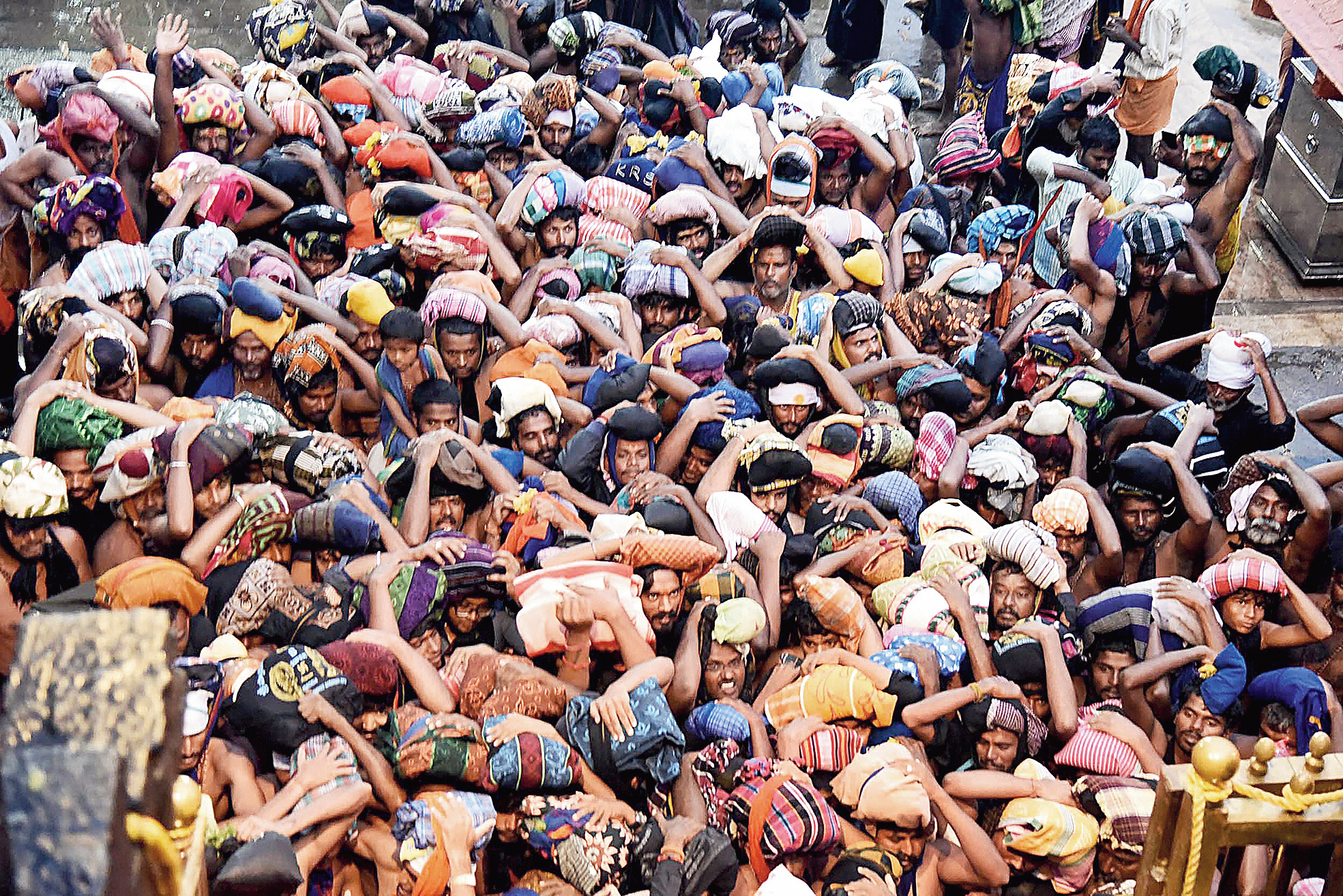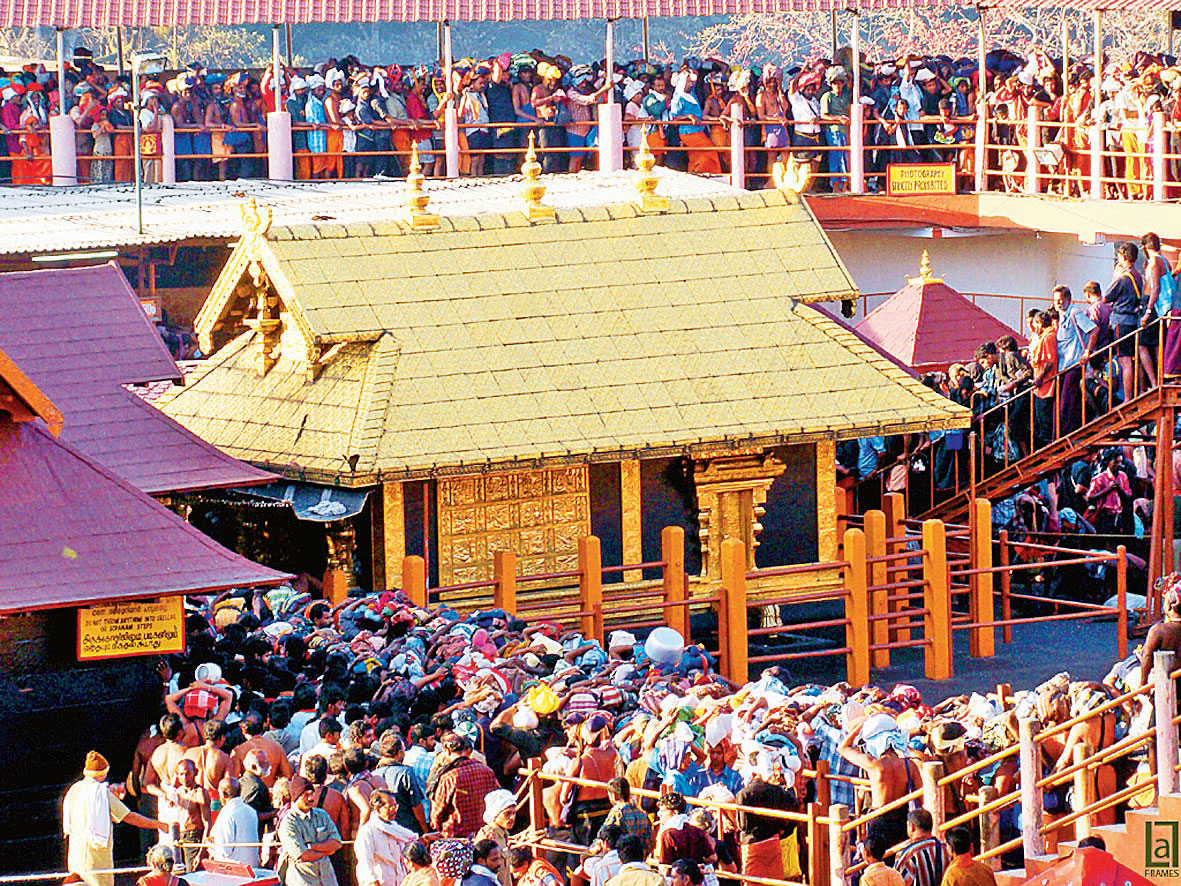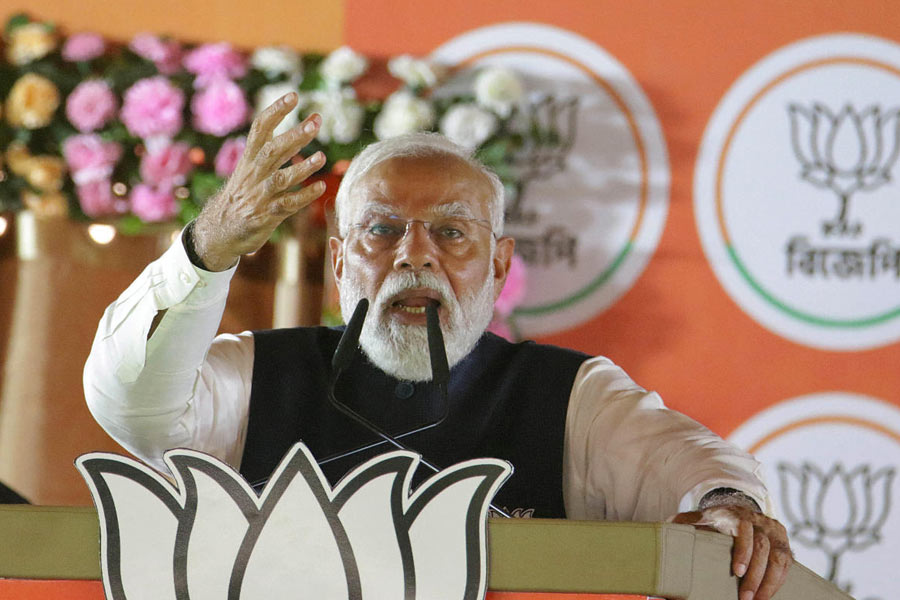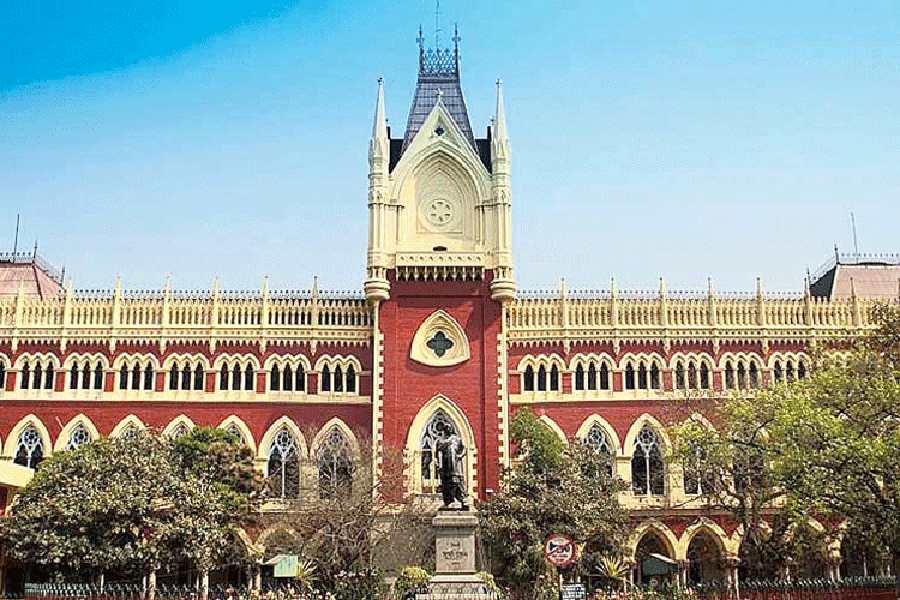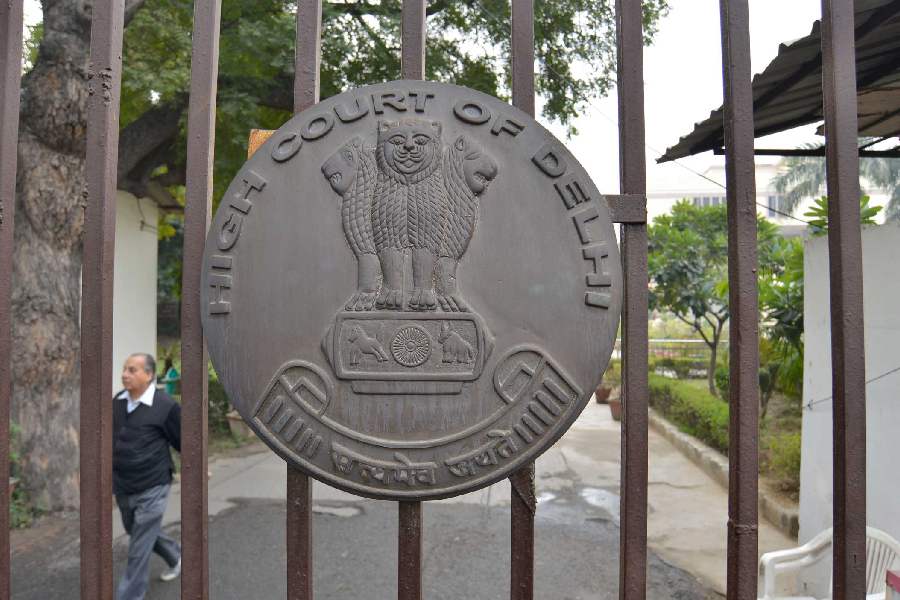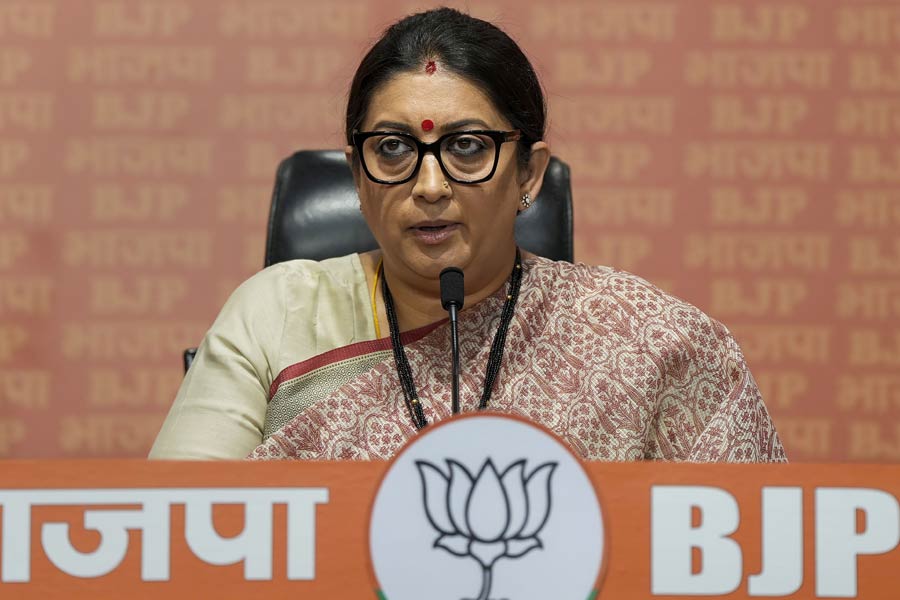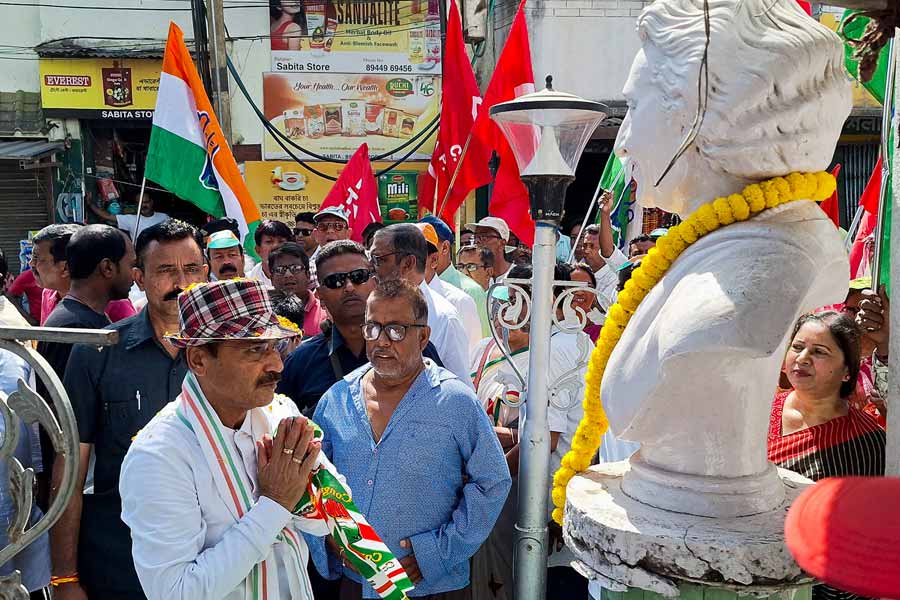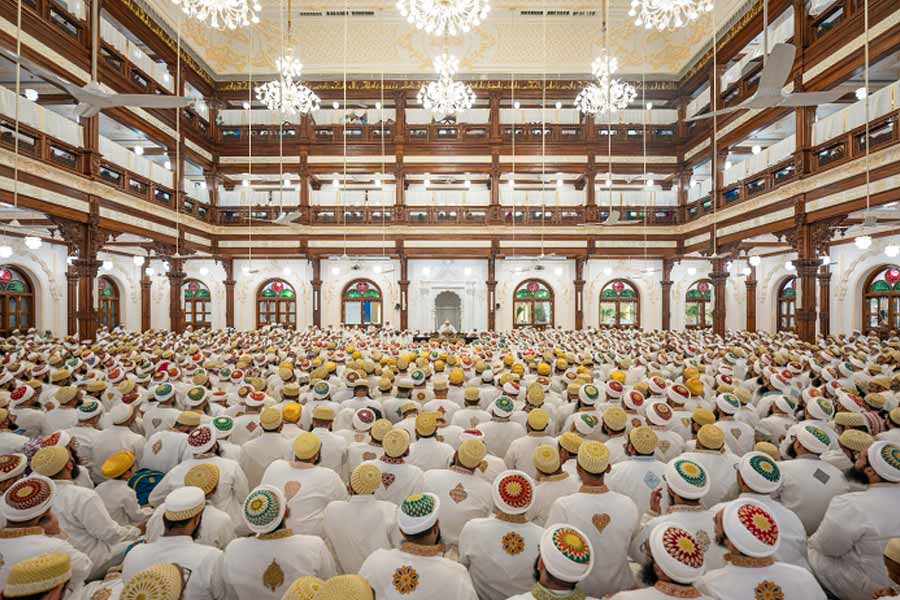The Sabarimala temple management board said on Friday it would petition the Supreme Court seeking time to implement its September 28 order allowing women to enter the shrine regardless of their age, citing infrastructure-related shortcomings.
The objective seems to be to keep women of childbearing age off the shrine during the main pilgrimage season, which began at 5pm on Friday and ends on January 20.
On January 22, the apex court will hear a batch of review pleas against its verdict in open court but it has not stayed the judgment.
“We plan to inform the court about the massive flood damage to the infrastructure in Pampa (the last point for vehicles, 5km from the temple) and the difficulties in acquiring forestland to create more facilities for the pilgrims,” Travancore Devaswom Board president A. Padmakumar told reporters.
He did not say whether the petition would also mention the ongoing protests by “devotees” and Sangh parivar activists against the implementation of the court order.
Sources suggested the state government, which wants to implement the court order but is wary of any confrontation with the crowds resisting it, is using the government-appointed board to try and buy time from the apex court.
Padmakumar had hinted that the petition might be filed on Monday, but sources later said the date could be advanced to Saturday, considering the seriousness of the matter.
Immediately after the apex court verdict, Padmakumar had signalled opposition to the judgment and said the board might move a review plea. But he dropped the idea the next day, allegedly after chief minister Pinarayi Vijayan chided him.
Devaswom minister Kadakampally Surendran, however, has said the state government never opposed the board’s stand.
“The Devaswom Board has always acted on its own. We did not oppose its earlier stand. The government understands that the board has full freedom to take its own decisions,” he said.
On the proposed petition, he said: “The Devaswom Board has its own concerns as it faces certain peculiar problems in managing the pilgrimage season. So it is trying to present those facts before the court.”
So far playing second fiddle to the state government since the controversy over the court order broke, the board on Friday seemed to asset itself by rejecting certain security measures proposed by the police.
In the morning, the police had declared that all devotees must leave the temple’s foreground, called the “Sannidhanam”, within an hour of the shrine closing for the night at 10pm.
They also ordered all shops, restaurants and even the counters that sell the prasadam — the holy offerings — to close at night. Devotees usually buy prasadam in large quantities to distribute among their family members and friends back home.
Since the contracts for the shops and restaurants are auctioned off against huge sums, the contractors approached the board seeking a refund, arguing it didn’t make business sense to keep their outlets closed at night.
Board officials then got the police to drop the closure plan, restoring the usual 24x7 schedule for the outlets. After the temple closed at 10 pm on Friday, some devotees were still at the Sannidhanam. The shrine was to reopen at 3 am on Saturday.
Breaking with tradition, all the policemen manning the temple have been ordered to tuck their shirts in, wear their belts and caps, and keep their batons and shields ready for use.
This appears a reaction to the mayhem created on November 6 by parivar activists who had camped overnight at the temple and charged at women, even those older than 50.
Board sources said the number of pilgrims who visited the temple on Friday was far lower than usual.
“This may be a result of the protests and law-and-order concerns. But we expect the inflow to pick up within the next few days,” an official who did not want to be named said.

